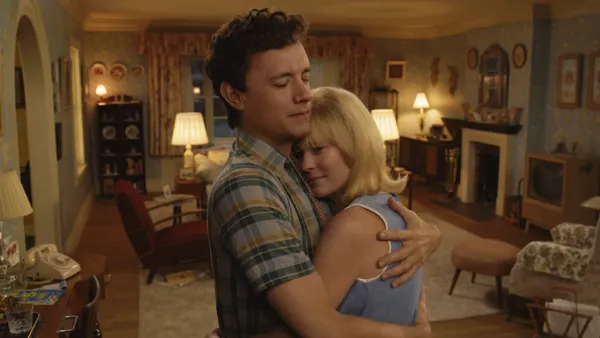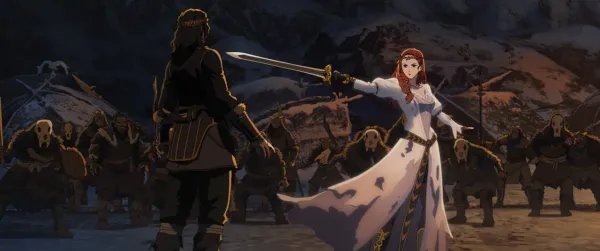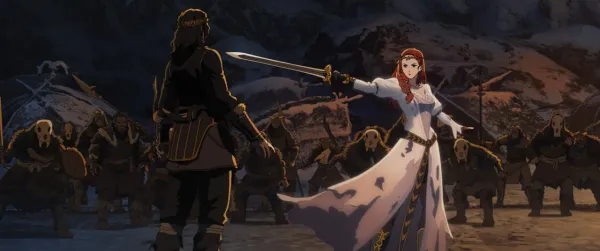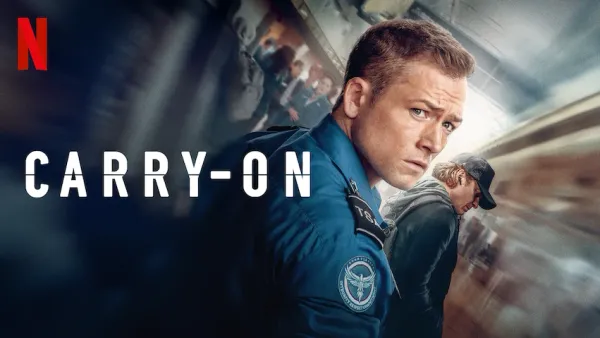Final Fantasy VII Remake lovingly revitalizes a masterpice
Playing Final Fantasy VII Remake is like seeing old friends, only to realize they are no longer the people you once remembered.
On the surface, everything seems just as it used to be. People still sort of dress like they did, and there’s a sense of shared memories that elicits warm fuzzy nostalgia at every turn. But once you start digging in you notice that things are… off. You hear folks laughing at jokes that never took place or reminisce about events they didn’t take part in. Everything still feels great because you’re sharing time with people you like, but the sense of unease never goes away.
It’s not anyone’s fault; the only certainty in life is that things change. There was never a chance that Square Enix would release just a remaster of their beloved flagship title. But it needs to be repeated: those expecting FINAL FANTASY 7 to be the game they played in their youth are going to be sorely disappointed. If you’re coming in fresh, your experience will be far better.
The original installment came at a weird time in gaming history, where technology took a sizable leap forward from the old cartridge-based systems, but was still hampered by limited capabilities. A genre defining experience for its time, Square’s original classic looks decidedly dated 23 years later, and you can tell where shortcuts had to be taken to fit everything on a single 700mb disc. But those limitations gave birth to both narrative and technological strokes of genius, where developers used subtlety and nuance to cover places they couldn’t create just yet. Even as rushed production schedules caused the English translation to be a confused and muddled mess, it didn’t take away from the story or characters. Which is really a testament to just how strong the foundation is.
With the remake comes natural trepidation and doubt. After all, for many the original FINAL FANTASY is as near perfect as games have ever gotten; what could really be improved by adding things to it? While it’s true that technology has gotten better, and game designers can now basically do anything they want, this often leads to what is known as the Kojima-Lucas effect; addition without limitation to the point that diminishing returns start setting in.
Set in an alternate world where technology lives halfway between industrial revolution and sci-fi, FF7 follows the adventures of Cloud Strife, a mercenary for hire. The evil Shinra Electric Company is sucking the planet dry of Mako — the lifeblood of the planet — and only a small eco-terrorist group called AVALANCHE stands in their way. Hired for a quick job to bomb one of the Shinra reactors, Cloud quickly finds himself in the middle of a vast conspiracy threatening to engulf the entire world.
That basic setup is exactly the same as it was 23 years ago. Everything else has been changed to some degree. Whether or not that is a good thing remains to be seen, as the FF7 REMAKE contains only the city of Midgar, which in the original covered approximately 10% of the game. What originally signalled the ending of a prologue with a thrilling call to adventure becomes now a vague promise of the future, and it’s as frustrating as it is exhilarating.
So, we’re not getting the full story, nor is there a date set yet when the next part will be released — or even how many parts in total are planned.
What we do get is a beautifully presented, gorgeously composed and newly envisioned experience that leaps into brand new narrative territory within the first hour of the game.
These new story beats come fast and unexpectedly, amping up all the way until the end. Some are minor changes, more often than not necessary to update and expand the story. Others will divide the fan base strictly down the middle.
Because the game only covers such a small part of the grand story, character motivations also feel truncated. Cloud is an aloof, difficult, and a somewhat unlikable jerk for much of the game because his character arc doesn’t kick in until well into halfway throughout the original story. Some changes have been made to fast track his growth, but it’s weirdly indecisive, especially in an episodic format like this.
It’s clear that director Tetsuya Nomura and writer Kazushige Nojima are well aware of how beloved the original game is, and they certainly pay the classic as much lip service as possible.
At times, it feels both reverent and burdened by the past, uncertain which kind of retelling it wants to be. Every time it tries to break out on its own, the remake quickly doubles back to the original.
The result is somewhat schizophrenic, and there are numerous elements of Nomura’s favorite tropes that fans of the franchise will recognize. Those that had to suffer through the hopelessly awful conclusion to Kingdom Hearts are not going to find solace here either.
There’s an ambitious attempt to start a meaningful conversation about what Final Fantasy means to fans around the world, and what a remake could even bring to the table at this point, but I can’t help but feel that maybe this isn’t the place to have it. Not that it isn’t their right to do what they want — it is their story after all — but to use a beloved classic that fans have been waiting for decades to experience all over again, that’s an interesting strategy.
Early judgement on the storytelling might be a bit too harsh and too hasty, especially since this is the first episode in what will likely be at least two or three.
Story points and changes feel bewildering now because there is little context for them. It will be at least half a decade before we can say whether or not the massive gamble with the plot will pay off. That’s not to say that some of these changes aren’t just downright bad even with context, but only time will tell what the big picture will eventually look like.
For the most part, Final Fantasy VII Remake does what it needs to and reminds audiences why the original is one of the most beloved games in history. There are dozens upon dozens of moments that made me smile from ear to ear, and the spirit of the original is easily felt in every frame.
Seeing old favorites like Wall Market or the iconic collapsed church recreated with modern technology is a joy to behold. Returning composer Nobuo Uematsu brings thrilling new orchestrations and updates to his acclaimed 1997 score. When things click, Final Fantasy VII Remake feels like a warm hug from a friend.
The things that always worked for the game are still there, and they’re just as memorable as ever. None of the issues in the remake stem from these parts, nor do the elaborations on them. It’s actually thrilling to see a more involved storyline for the rest of AVALANCHE, especially fan favorite Jessie, the tech wiz with an unrequited crush on Cloud. Barret Wallace, the leader of AVALANCHE, gets a well-deserved makeover here, with the game giving him multiple great scenes to flesh out the man behind the bravado persona. It actually says a lot about how strong these characters are that even after ten hours with them, I still wanted more. Square Enix in the 90s was second to none when it came to crafting likable protagonists, and time has done nothing to diminish those achievements.
Where the game really stumbles are in the new additions, which feel superfluous right off the bat. We already know that the story works without them, so what can they bring to the table? As it turns out, not much. New secondary antagonists like Roche are cute but entirely forgettable, and side characters from the extended Final Fantasy spin-offs feel hopelessly out of place. Some of the new inclusions feel downright lazy, as if their models came from castoffs of Final Fantasy XV, complete with placeholder names like Sam and Buddy.
There are also major issues with the pacing. Early on, when the game could take its time to breathe, the pace is amped up consistently, pushing the player from one major set piece to another. It’s only after the midway point, when things are already inevitably changed, that the hubs become fully explorable with a multitude of longer side quests to complete. This takes away from the urgency of the finale, and feels like an odd choice — especially when Nomura’s team throws in a brand-new area riddled with even more lore changing material at the last minute. Some of the bigger dramatic beats aren’t given the weight they deserve either in favor of yet another dungeon, as if the creative team was worried that a shorter game wouldn’t be received as well.
It’s these expansions that contribute to the other issue troubling the game; namely that some of it feels really unpolished. Depending on the area textures are either sublime or horrendous, with very little middle ground. Texture popping is rampant, and my poor PS4 Pro sounds like a jet engine at the best of times trying to keep up with the poorly optimized experience. Data streaming issues cause characters to stall for long periods of time before their dialog kicks in, and backgrounds might take a few extra seconds to load when changing areas. None of these are deal breakers, but they are annoying gaffs in a game that’s been this long in development. I can’t help but wonder if the overall product had been better with a shorter experience instead.
Out of all the new changes it’s the battle system that feels the most polished. A mixture of the old active time battle system (where characters take turns to act) and a fast-paced action game, Final Fantasy VII Remake smartly uses the best of both worlds to update things for a new audience. Problems arise again towards the end, where battles feel needlessly drawn out, and some of the enemies come equipped with attacks that too easily can stun the entire party repeatedly. The system also needs for the player to constantly babysit the non-active characters, as they barely do anything on their own without active input. Despite complaints, this is still the best new incarnation of the mechanic since the classic style was retired some years back.
Is Final Fantasy VII Remake a good game? Yes, absolutely. It takes everything fans love about the original and lovingly updates these aspects to the present day in gorgeous detail. The new combat system is tactical and fun, even if it needs some fine-tuning. Seeing familiar locations and characters is a joy for returning fans, and Square Enix have done a wonderful job in introducing this world to new players. This is the RPG experience of the year that you need to play if you have any interest in the genre. If you’ve never played any Final Fantasy games before, you’re incredibly lucky to start with this one.
Having said that, fans of the original, those that have held the series close to their heart for decades, are going to be disappointed. Is that disappointment reasonable? That’s impossible to say until the story is finished. REMAKE takes huge risks with iconic material, and for that it deserves to be applauded. However this all turns out, it can’t be said that they’re resting on their laurels.
For better or worse, everything has changed, and Final Fantasy along with it. Like our beloved heroes we’re part of a larger world now; one that we’ve never seen before. It’s scary, but also exciting, to not know what the future holds in store.



